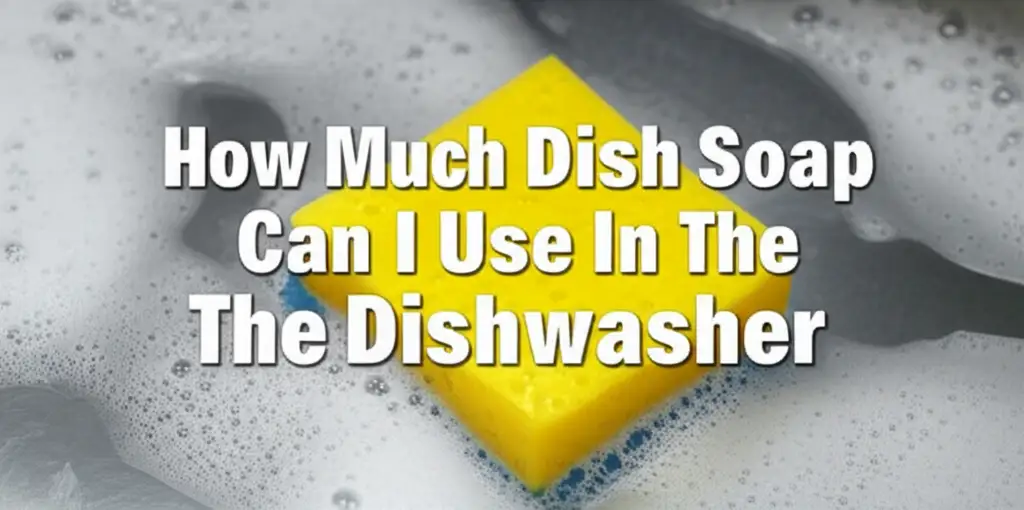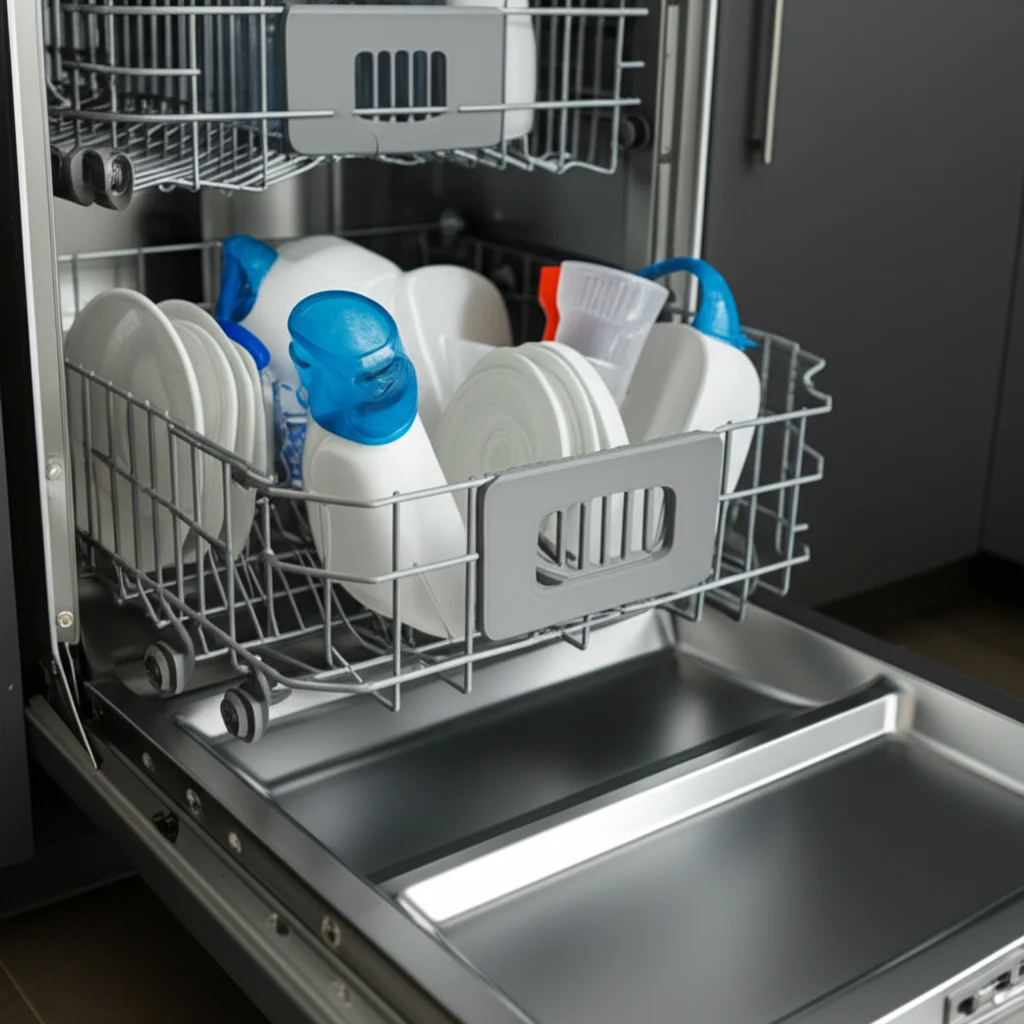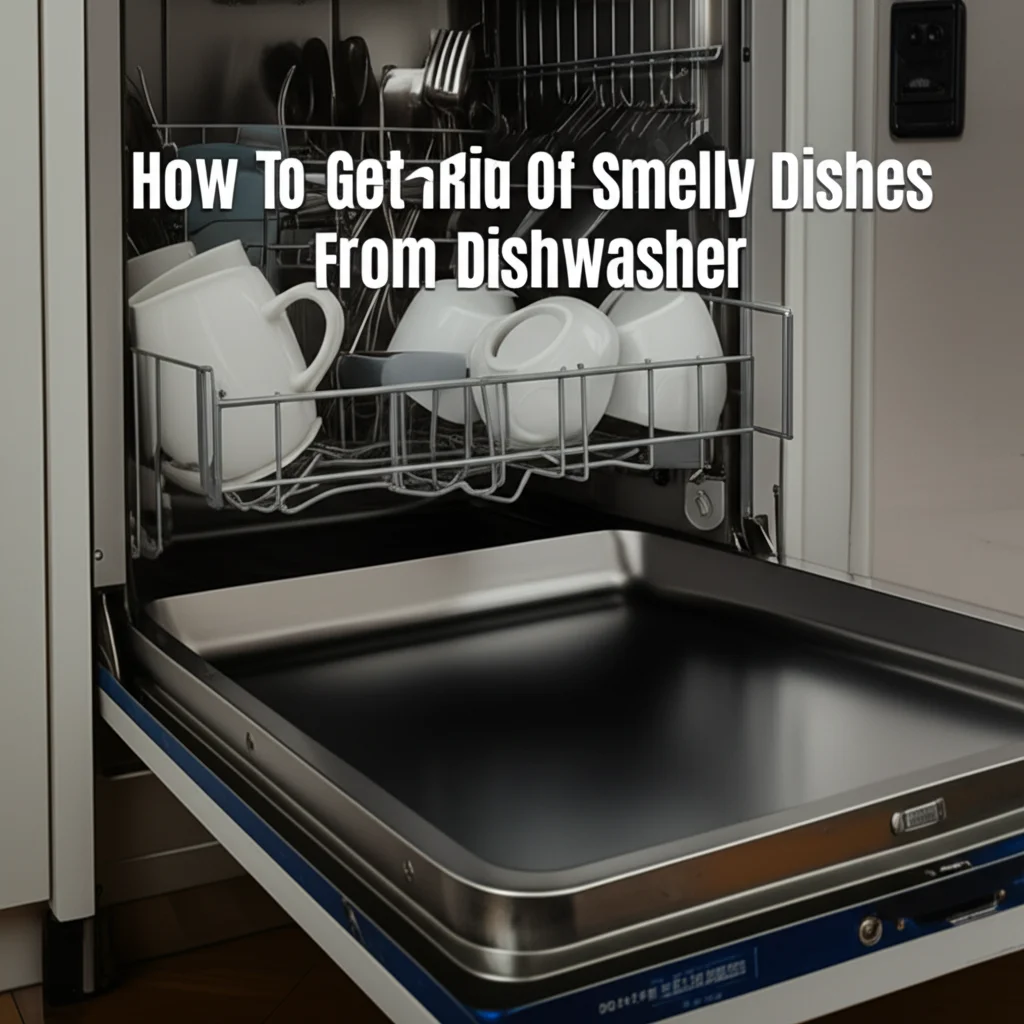· Davia Murnell · Home Appliances · 15 min read
How Much Dish Soap Can I Use In The Dishwasher

Dish Soap in Dishwasher: How Much Is Too Much?
We all want sparkling clean dishes. Sometimes, reaching for the liquid dish soap from the sink seems like a quick fix for a dishwasher. You might think “more soap means cleaner dishes,” but this idea can cause problems. Understanding how much dish soap you can use in the dishwasher is important for appliance health. Using the wrong type or amount of soap leads to big sudsy messes. This guide helps you avoid common mistakes and ensures your dishes get clean safely. We will explore why hand dish soap is not for dishwashers. I will also explain the right way to achieve great cleaning results.
Takeaway
- Never use hand dish soap in a dishwasher. It creates excessive suds and can damage your appliance.
- Always use automatic dishwasher detergent. This product is specifically designed for dishwashers.
- Follow manufacturer instructions for detergent dosage. Amounts vary by product type (powder, liquid, pod) and water hardness.
- Too much detergent can leave residue. Not enough detergent leads to dirty dishes.
- Proper maintenance prevents issues. Clean your dishwasher regularly to keep it working well.
You should never use regular hand dish soap in your dishwasher. It creates too many suds, causing floods and potential damage to your appliance. Instead, always use automatic dishwasher detergent. Follow the product’s dosage instructions, typically one tablespoon for powder or liquid, or one pre-measured pod per load.
The Big Difference: Hand Soap vs. Dishwasher Detergent
Understanding the difference between hand dish soap and automatic dishwasher detergent is crucial. Many people assume soap is just soap. However, these products have very different formulas. Using the wrong one can lead to big problems. Hand dish soap is made to create lots of bubbles. These bubbles help lift food off dishes when you scrub them by hand.
Dishwasher detergent, on the other hand, is low-foaming. It is designed to clean effectively without producing excess suds. This is important because dishwashers use powerful jets of water. If you put hand dish soap into a dishwasher, those jets will whip it into a huge foam. This foam will expand quickly. It can overflow your dishwasher, creating a messy flood in your kitchen. Beyond the mess, the suds can harm your appliance. They can clog pipes and interfere with the wash cycles. This leads to poor cleaning and costly repairs over time.
Why Hand Dish Soap Is a Dishwasher Disaster
Using hand dish soap in your dishwasher is a mistake you will likely only make once. The results are dramatic and immediate. Hand soap is formulated to produce rich, lasting suds. This is great for manual scrubbing but disastrous inside a machine. Dishwashers are sealed environments. They rely on specific chemical reactions from low-sudsing detergents.
When hand soap gets agitated by powerful water jets, it quickly expands. This creates an enormous amount of foam. This foam can fill the entire dishwasher tub. It then pushes out through vents, under the door, and into your kitchen. Imagine a bubble bath overflowing onto your floor. This scenario is exactly what happens. The suds can damage your kitchen floor. They can also ruin nearby cabinets.
Beyond the visible mess, the suds pose a serious threat to the appliance itself. Foam can enter the air vent. It can also seep into the electrical components. This causes short circuits or permanent damage to the motor. The excess suds also prevent proper rinsing. Your dishes will come out with a film or feel slimy. This means they are not clean at all. In severe cases, the appliance might need professional repair or even replacement. For a safe and effective clean, stick to detergents designed for automatic dishwashers. You can learn more about how to use your dishwasher correctly to avoid such issues.
Choosing the Right Detergent for Your Dishwasher
Picking the right detergent is key to getting clean dishes and keeping your dishwasher healthy. Not all detergents are the same. They come in different forms: powders, liquids, gels, and pods. Each type has its own benefits and usage instructions. Powder detergents are often economical. You can adjust the amount based on your load size and water hardness. Liquid and gel detergents offer convenience. They dissolve easily. Pods are the most convenient option. They are pre-measured for a single load.
No matter the form, always choose a product specifically labeled “automatic dishwasher detergent.” This ensures it contains the right ingredients. It means it is designed for the high-pressure, low-suds environment of your machine. Products like “dishwasher liquid” are specifically formulated to prevent excessive foaming and clean effectively. Look for brands known for dishwasher-specific products. Do not confuse them with hand dish soap. Using the correct detergent protects your appliance. It also guarantees spotlessly clean dishes every time.
When choosing a detergent, consider your water type. Hard water areas might benefit from detergents with built-in rinse aid. They can also benefit from specific hard water formulas. These formulations help prevent mineral deposits on dishes. They also help keep the machine clean. Checking the ingredients can also be helpful. Some detergents include enzymes to break down tough food particles. Others might have bleach for extra sanitization. Your detergent choice directly impacts your dishwasher’s performance and longevity. Make sure to choose wisely.
How Much Dishwasher Detergent to Use: Dosage Guidelines
Knowing the correct amount of automatic dishwasher detergent to use is vital. It is not a “more is better” situation. Too much detergent can leave a cloudy film on your dishes. It can also cause etching on glass. Too little detergent, and your dishes will not get clean. They may have food particles or grime left behind. The right dosage depends on several factors. These include the type of detergent, your water hardness, and the soil level of your dishes.
For powder or gel detergents, a general rule is to fill the main detergent dispenser cup. This cup is usually located on the inside of the dishwasher door. Most dispenser cups have a line indicating the “full” mark. For light loads or pre-rinsed dishes, you might use slightly less. For very dirty loads or hard water, you might fill it completely. Some dishwashers have two dispenser cups: a main one and a pre-wash cup. Use a small amount in the pre-wash cup for heavily soiled dishes if your machine has one. Always refer to your detergent packaging for precise instructions. They often provide guidelines based on water hardness levels in your area. This information helps you fine-tune the amount.
Pre-measured pods or tablets simplify this process. You simply place one pod in the main detergent dispenser for each wash cycle. These are designed to deliver the optimal amount of cleaning power for an average load. You should not use more than one pod per cycle. Even with very dirty dishes, adding more than one pod can lead to detergent residue. This is because the machine is designed to rinse out a specific concentration of detergent. Using pods removes the guesswork. This ensures consistent cleaning performance.
Understanding how much dishwasher powder to use, or any other form, is a step towards perfect dishwashing. It helps keep your machine running efficiently.
Common Mistakes and How to Fix Them
Many people make small mistakes when using their dishwasher. These mistakes can lead to dirty dishes or appliance problems. One common error is pre-rinsing dishes too thoroughly. Modern dishwashers and detergents are designed to work with some food residue. Pre-rinsing can actually trick your dishwasher into using a gentler cycle. This results in less effective cleaning. Scrape off large food pieces, but do not rinse completely.
Another mistake is overloading the dishwasher. Packing too many dishes in blocks water spray. It prevents water and detergent from reaching all surfaces. This leaves dishes dirty. Load your dishwasher according to the manufacturer’s guidelines. Ensure space between items for proper water circulation. Overloading also adds stress to your dishwasher’s motor. This can shorten its lifespan.
Using the wrong temperature setting is also a common issue. Many people use lower temperatures to save energy. However, hot water is crucial for activating detergent enzymes. It also helps sanitize dishes. Consult your dishwasher’s manual for recommended wash cycle temperatures. Most detergents work best with hot water. This ensures optimal cleaning and hygiene.
If your dishes come out with white spots or a film, you might have hard water issues. This can be fixed by using a rinse aid. Rinse aid helps water sheet off dishes. This prevents spots. For very hard water, specific dishwasher salts can also help. These salts regenerate the water softener inside your dishwasher. This ensures better cleaning performance. Learning how to use Finish salt for dishwasher can greatly improve results in hard water areas.
Finally, ignoring regular dishwasher cleaning is a mistake. Food particles, grease, and hard water minerals can build up. This reduces cleaning effectiveness. Clean your dishwasher filter regularly. Run an empty cycle with a dishwasher cleaner once a month. This keeps the machine running its best. Learning how to clean your dishwasher is essential for its longevity.
Maintaining Your Dishwasher for Optimal Performance
Proper maintenance ensures your dishwasher runs efficiently for years. A well-maintained dishwasher cleans better. It also lasts longer. One simple step is to regularly clean the filter. Most dishwashers have a removable filter at the bottom. Food debris and grease can collect here. If left uncleaned, this buildup can cause foul odors. It also reduces water circulation. This results in dirty dishes. Check your manual for specific instructions on how to remove and clean your filter. A quick rinse under the tap often does the trick. Sometimes, a soft brush and warm, soapy water are needed.
Periodically, run a cleaning cycle. Even with regular use, residues like hard water minerals and detergent buildup can affect performance. You can buy specialized dishwasher cleaners. These cleaners are formulated to remove grease, grime, and limescale. Place the cleaner in the detergent dispenser or lay it in the bottom rack. Then run an empty hot water cycle. This helps keep the interior sparkling. Alternatively, you can use a cup of white vinegar in the top rack. This helps loosen mineral deposits. Do not mix vinegar with bleach-based cleaners. This can create harmful fumes. You can find more information on how to use dishwasher cleaner for best results.
Also, check the spray arms for clogged holes. Food bits can get stuck in the small holes of the spray arms. This reduces water pressure and prevents proper cleaning. Use a toothpick or small wire to clear any blockages. Ensure the spray arms spin freely. This guarantees water reaches all parts of the dishwasher.
Finally, keep the door gasket clean. The rubber seal around the door can trap food particles and mold. Wipe it down regularly with a damp cloth. This prevents odors and ensures a tight seal. A tight seal prevents leaks during operation. By following these simple maintenance steps, your dishwasher will continue to provide clean, sparkling dishes efficiently.
Environmental and Cost Implications of Detergent Use
The way you use dishwasher detergent impacts both the environment and your wallet. Using too much detergent does not just lead to residue on dishes. It also means you are wasting product. This requires you to buy detergent more often. Over time, these small excesses add up to significant costs. Using the correct amount saves you money. It also ensures the best cleaning results.
From an environmental perspective, detergent runoff enters our water systems. Excess detergent means more chemicals going into rivers and lakes. These chemicals, even biodegradable ones, can affect aquatic life. They contribute to nutrient pollution. This can lead to algal blooms. These blooms deplete oxygen in the water. This harms fish and other organisms.
Many modern detergents are designed to be effective in small doses. They are often concentrated. This reduces packaging waste and transportation costs. Choosing eco-friendly detergents with phosphate-free formulas also helps. Phosphates can be particularly damaging to water ecosystems. They promote excessive algae growth. Look for products with environmental certifications. These labels indicate a commitment to lower environmental impact.
Proper loading of your dishwasher also plays a role. Running full loads reduces water and energy consumption. It also minimizes the number of cycles you need. This saves detergent too. Scrape dishes well instead of pre-rinsing. This conserves water and energy. It also allows the detergent to work effectively. By being mindful of your detergent use and dishwashing habits, you contribute to a healthier planet. You also save money in the long run.
When to Call a Professional for Dishwasher Issues
Sometimes, despite your best efforts, your dishwasher might not perform correctly. Knowing when to call a professional can save you stress and prevent further damage. If you consistently find suds overflowing, even after using the correct detergent, there might be a deeper issue. This could indicate a problem with the drain pump or the water inlet valve. These parts control water levels and drainage.
Unusual noises, such as grinding or loud humming, are also red flags. These sounds can point to issues with the motor or the pump. Ignoring these noises can lead to complete appliance failure. If your dishes are consistently coming out dirty, even after cleaning the filter and checking spray arms, professional help might be needed. This could be due to a faulty wash pump, a heating element problem, or issues with the detergent dispenser.
Leaks are another clear sign to call an expert. Water pooling around the base of the dishwasher can cause significant floor damage. It can also lead to mold growth. Leaks can stem from cracked hoses, worn door gaskets, or pump seal failures. These issues often require specialized tools and knowledge to fix. While some minor problems can be self-repaired, others are best left to a trained technician. Attempting complex repairs yourself can void warranties or cause more harm. If your dishwasher fails to power on, stops mid-cycle, or displays error codes that you cannot resolve, it is time for a professional diagnosis. Investing in professional repair ensures your appliance returns to optimal working condition safely.
FAQs About Dish Soap in Dishwashers
Can I use a small amount of hand dish soap if I run out of dishwasher detergent?
No, even a small amount of hand dish soap can create excessive suds. This leads to overflow and potential damage to your dishwasher. It’s always best to wait until you have proper automatic dishwasher detergent. Running the dishwasher without detergent is better than risking a sudsy mess.
What happens if I accidentally put hand dish soap in the dishwasher?
If you accidentally use hand dish soap, immediately stop the cycle. Open the dishwasher door. You will likely see a large amount of foam. Scoop out as much foam as possible. Then, pour about half a cup of cooking oil or salt into the bottom. This helps to break down the suds. Close the door and run a rinse cycle. You might need to repeat this process several times until the suds are gone.
How do I remove excess suds from my dishwasher?
To remove excess suds, first, turn off the dishwasher. Remove dishes. Use a shop vac to suck up the foam and water. Alternatively, you can sprinkle salt or pour cooking oil directly onto the suds to break them down. Then, run a rinse-only cycle with no detergent. You may need to repeat this process until no suds appear.
Can old dishwasher detergent go bad?
Yes, dishwasher detergent can lose its effectiveness over time. Powder detergents can clump if exposed to moisture. Liquid gels can separate. Pods can stick together. For best results, use detergent within six months of opening. Store it in a cool, dry place. Using fresh detergent ensures optimal cleaning power.
How much dishwasher detergent for soft water?
For soft water, you generally need less dishwasher detergent than for hard water. Start with about one tablespoon of powder or liquid detergent. For pods, one pod is usually sufficient, as they are pre-measured. Adjust the amount down if you notice film or residue on your dishes. Using too much in soft water can cause etching.
Does dish soap clean anything else effectively?
Yes, dish soap is a versatile cleaner. It can effectively clean greasy surfaces, remove stains from fabric, and even be used for general household cleaning. Its grease-cutting properties make it excellent for cleaning kitchen counters or sinks. However, always ensure it is appropriate for the surface you are cleaning. For example, what soap cleans oil in carpet? often suggests dish soap.
Conclusion
Understanding “how much dish soap can I use in the dishwasher” is not just about quantity; it is about the right type of soap. Using automatic dishwasher detergent is essential for clean dishes and a healthy appliance. Hand dish soap causes overflowing suds and can lead to costly damage. Always follow the manufacturer’s guidelines for detergent dosage. This ensures efficient cleaning and avoids problems like residue or machine malfunction.
Proper detergent use, combined with regular maintenance, keeps your dishwasher running smoothly. Clean filters, clear spray arms, and occasional cleaning cycles extend your appliance’s life. By adopting these simple habits, you protect your investment. You also ensure your dishes come out sparkling clean every time. Choose the right detergent, use the correct amount, and enjoy hassle-free dishwashing. Your dishwasher and your kitchen will thank you. For more tips on maintaining your home appliances, visit our website.
- Dish Soap
- Dishwasher
- Cleaning Tips
- Appliance Care
- Kitchen Cleaning
- Dishwashing Detergent
- Suds Overflow





